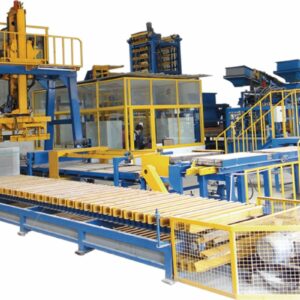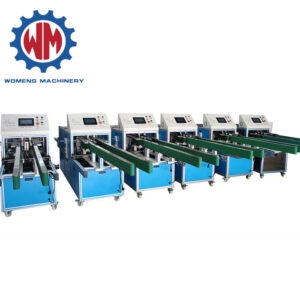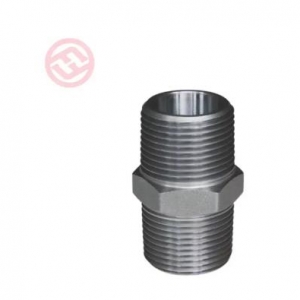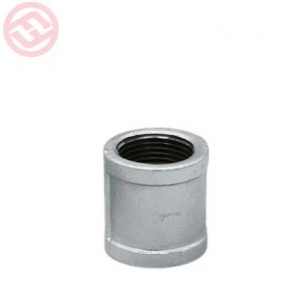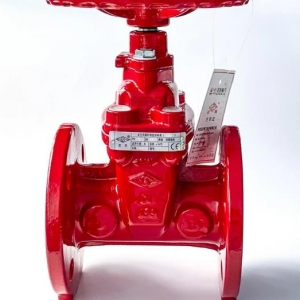The primary purpose of a block making machine in the construction industry is to efficiently and precisely manufacture concrete blocks or bricks. These blocks and bricks are essential building materials used in various construction projects.
The key purposes and roles of block making machines in the construction industry include:
-
Block and Brick Production: Block making machines are designed to produce a wide range of blocks and bricks, including solid blocks, hollow blocks, interlocking blocks, and decorative blocks. These units serve as fundamental components in constructing walls, partitions, pavements, and structural elements in buildings and infrastructure.
-
Efficiency: Block making machines significantly increase the efficiency of block and brick production compared to manual methods. They can produce a high volume of blocks with uniform quality, reducing labor requirements and construction project timelines.
-
Quality Control: Block making machines ensure consistent block dimensions and quality. This consistency is crucial for the structural integrity of constructed buildings, as uniform blocks and bricks result in more stable and reliable structures.
-
Strength and Durability: Machine-pressed blocks and bricks are compacted under controlled pressure, leading to higher compressive strength and durability. These characteristics are essential for load-bearing walls and structures.
-
Versatility: Block making machines can be configured to produce various block types and sizes, allowing them to adapt to diverse construction needs. This versatility caters to the requirements of different construction projects.
-
Cost Savings: While there is an initial investment cost associated with block making machines, they often lead to significant cost savings in the long run. These savings come from reduced labor costs, improved efficiency in the production process, and higher-quality construction.
-
Reduced Labor Dependency: Using a block making machine requires fewer laborers compared to manual methods, where a large workforce is often needed for tasks like mixing, molding, and stacking blocks. This reduces labor expenses and enhances worker safety.
-
Safety: Block making machines help reduce the physical strain on workers, as they minimize manual labor tasks that can be physically demanding and pose health and safety risks.
-
Environmental Benefits: Some block making machines are designed to use recycled materials in block production, promoting sustainability and reducing waste. This aligns with environmentally friendly building practices.
-
Precision: Block making machines ensure precise block dimensions, allowing for tight tolerances and exact measurements. This precision is essential for construction projects that require accuracy.
In summary, block making machines are crucial tools in the construction industry, serving as efficient, quality-controlled, and versatile means of producing the building blocks and bricks needed for constructing homes, commercial buildings, public infrastructure, and various other structures. They contribute to cost savings, durability, and sustainability while improving the efficiency and safety of the construction process.
What are the advantages of using a block making machine compared to manual methods for block production?
Using a block making machine offers several advantages over manual methods for block production in the construction industry. These advantages encompass increased production efficiency, improved block quality, reduced labor, and enhanced versatility.
Here are the key advantages of using a block making machine:
-
Higher Production Rate: Block making machines can produce blocks at a much faster rate compared to manual methods, significantly increasing the output for construction projects.
-
Consistency in Quality: Block making machines ensure consistent block dimensions and quality. Manual methods can lead to variations in size and density, affecting structural integrity.
-
Enhanced Strength: Blocks produced by machine pressing are compacted under controlled pressure, leading to higher compressive strength. This is especially important for load-bearing applications.
-
Versatility: Block making machines can be configured to produce various block types, block maker machine sizes, and shapes, including solid blocks, hollow blocks, interlocking blocks, and decorative blocks. Manual methods may have limited versatility.
-
Cost Savings: Although block making machines have an initial investment cost, they can lead to significant cost savings in the long run. These savings come from reduced labor costs and improved efficiency in the production process.
-
Reduced Labor Dependency: Using a block making machine requires fewer laborers compared to manual methods, where a large workforce is often needed for tasks like mixing, molding, and stacking blocks. This reduces labor expenses and improves worker safety.
-
Improved Health and Safety: Manual block production can be physically demanding and pose health risks to workers, especially when handling heavy materials. Block making machines reduce the physical strain on workers and enhance safety.
-
Environmental Benefits: Block making machines can be designed to use recycled materials in block production, promoting sustainability and reducing waste. This aligns with environmentally friendly building practices.
-
Precise Block Dimensions: Machines ensure precise block dimensions, allowing for tight tolerances and exact measurements. This is essential for projects that require precision and consistency.
-
Automation and Control: Block making machines can feature automation and computerized controls, allowing for precise control over the entire production process. This minimizes human error and ensures uniform block quality.
-
Conservation of Resources: Block making machines optimize the use of raw materials, reducing waste and saving resources. The accurate proportioning of materials minimizes material excess.
-
Efficient Curing: Some block making machines include integrated curing systems that optimize curing conditions, leading to faster and more efficient solidification of the blocks.
In summary, using a block making machine offers numerous advantages, such as increased production efficiency, higher quality, cost savings, and reduced labor dependency. These benefits make block making machines valuable tools for construction projects of all sizes, from small-scale ventures to large infrastructure developments.
